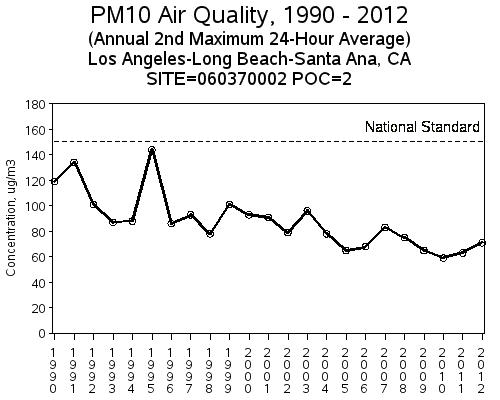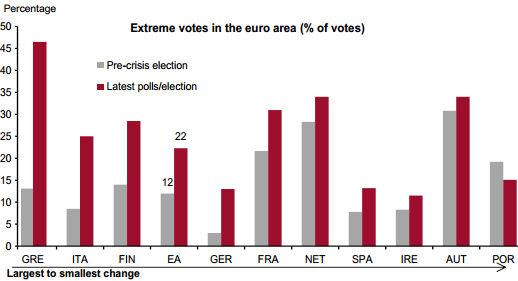Back in 2003, the combination of heat and bad air quality in Paris got so bad that it claimed the lives of an estimated 10,000 people.
That was one nasty wave of heat and pollution.
It seems that something other than love is in the air once again, and things have gotten so bad that Paris officials banned all cars with even numbered license plates this past Monday. The reason is the shockingly high levels of particulate matter concentration (PM). PM is a “criteria” pollutant regulated by the EPA, and it is linked to possibly several hundred thousand premature deaths each year. In the US, however, the dominant source of emissions is coal-fired power plants, whereas the EU has a much bigger share of its passenger vehicles powered by diesel fuel. These diesel vehicles are much greater contributor to PM than the gasoline-powered vehicles common in the US.
From the AP story:
The safe limit for PM10 is set at 80 microgrammes per cubic metre (mcg/m3). At its peak last week, Paris hit a high of 180 mcg/m3 but this had fallen to 75 mcg/m3 by Monday.
I suppose the fact that it fell to 75 mcg/m3 is comforting, but that is still very high. As a basis for comparison, I picked a monitoring station from Los Angeles –one of the heaviest polluted urban areas in the US. The data are available at the EPA air trends site, which tracks every monitoring station.
Notice that the standard is the second-highest average for a 24-hour period, with the U.S. standard at 150. Also notice that the 75 mg/m3 that Paris returned to is still about as bad as it gets down in LA these days.


